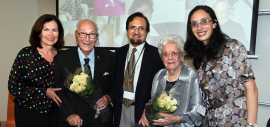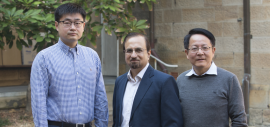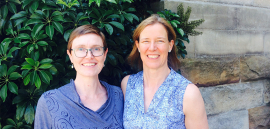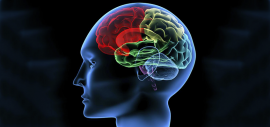Blog: The Brain Dialogues, filtered by tag: Research Projects
J Holden Family Foundation Advances Neuroimaging Research
HEIDI DOUGLASS | h.douglass@unsw.edu.au
“Brain age” is an emerging hot research topic in brain ageing research. Brain age refers to an estimate of “how old a person’s brain is biologically”, representing actual brain health status. For example, a person aged 80 years old may have a healthier brain and more intact brain structures relative to his/her age. In this case, a younger brain age of, for example, 70 will be assigned. By doing so, one can assess the brain’s health relative to chronological age. Research can also be conducted by examining the protective factors in the individuals with… Read More
Does Social Interaction Reduce Risk of Dementia?
DR ANNE-NICOLE CASEY
How people interact with and perceive one another, and each person’s thoughts and feelings about the quality of those interactions and relationships, can affect physical and mental health and well-being. Social cognitive function, which broadly refers to the way our brain processes social information, is recognised as an important marker of how efficiently our brain processes information in general1. Interestingly, the number of individuals with whom a person interacts frequently is associated with their short-term memory capacity2. Some studies report that having larger… Read More
Aspirin Use Questioned in Landmark 5 Year Study
DR STEPHANIE WARD, Monash University and Visiting Fellow with UNSW Sydney School of Psychiatry
For thousands of years the therapeutic effects of willow tree bark extract, salicyclic acid, have been well known. Refined and stabilised by Hofman in 1897, today aspirin is one of the most widely used medications. Aspirin reduces inflammation, and because it also has an effect on blood clotting it is a mainstay of treatment for cardiovascular diseases such as heart attack and stroke, and for the prevention of recurrent stroke and heart attacks in people whom have already experienced these - what… Read More
Findings from the Older Australian Twins Study
HEIDI DOUGLASS | h.douglass@unsw.edu.au
Established by CHeBA staff in 2007, the Older Australian Twin Study (OATS) is the largest and longest running Australian research study of its kind investigating healthy brain ageing. By studying older twins (aged 65+ years) over time, OATS allows researchers to investigate the complex interactions between multiple genetic and environmental factors which cause brain diseases. Over the last decade, OATS has generated over 32 published papers and contributed to 8 international consortia, providing valuable insights into healthy brain ageing and age-… Read More
Living to 100

DR CHARLENE LEVITAN
Centenarians are the fastest growing age worldwide. We can learn about ageing by studying the extremes, especially those who are models of "successful ageing". So how do we live to 100 in good physical and mental health?
Approximately 30% of longevity is contributed to be our genes. Parents of centenarians live an average age of 10 years longer than the average life expectancy of the population. Centenarians are four times more likely to have a sibling in their early nineties.
The remaining 70% of ingredients relate to the our life style. Montefiore participants in the… Read More
Donating Your Brain to Research
HEIDI DOUGLASS | h.douglass@unsw.edu.au
There are currently approximately 320,000 people in Australia with dementia, with that number set to rise to almost one million by 2050, and 115 million globally. These predictions mean that not only do we need a clear plan to make care available for so many people with dementia, but we also need to pursue prevention strategies vigorously.
Prevention of dementia depends largely upon research, and beyond the necessities of funding, equipment, and academics with the right skill base to perform the research we need one extra thing: brains.
"Even before… Read More
Why Do Women Live Longer Than Men?
HEIDI DOUGLASS | h.douglass@unsw.edu.au
Yes, it’s true. Women live longer than men. In fact not only does evidence suggest that we females have always outlived the blokes, it appears that as more time passes the gap is increasing. Currently Australian women can expect to live, on average, 5 years longer than our male counterparts, which is the same for most developed nations of the world. Why is this so?
No-one knows for sure, but there are a number of theories. According to CHeBA’s Co-Director Professor Perminder Sachdev, the first thing that people will say about this topic is that… Read More
What's New in Alzheimer's? Pacing the Brain
PROFESSOR PERMINDER SACHDEV, MD, PhD
As a clinician, I regularly advise my patients with memory problems to keep mentally and socially active; “keep stimulating your brain” is the message. There could be a new twist to the notion of brain stimulation if some of the current research proves to be beneficial. The National Institute of Health in the United States recently funded a study of deep brain stimulation (DBS) for the treatment of Alzheimer’s.
DBS is not a new technique, and it is regularly used to treat Parkinson’s disease and some other movement disorders. It involves the placement of… Read More







